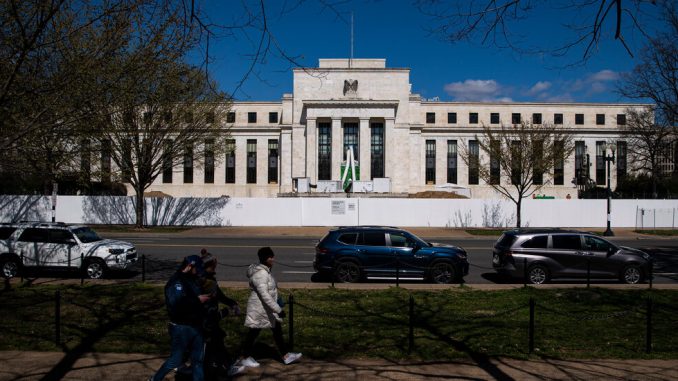
Strong consumer spending may keep officials alert.
While the Fed is dealing with the possibility that higher market-based interest rates will weigh on the economy, they are also confronting another potential challenge: Economic data have remained surprisingly strong in recent months.
On one level, this is good news. Consumers are shopping and companies are hiring at a rapid clip despite of higher interest rates, and that resilience has come at a time when inflation has moderated substantially. The Fed’s favorite inflation gauge has slowed to 3.4 percent, down from 7.1 percent at its peak in summer 2022.
But if consumer spending remains so strong that companies feel they can raise prices without scaring away customers, that could make it tough to fully wrestle inflation back down to 2 percent.
That’s why policymakers at the Fed are watching the continued strength closely — and trying to decide whether it suggests that further interest rate increases are needed.
Timing is a big question.
Officials may decide that they simply need more time to watch economic trends play out.
Holding off on further rate moves in November — and possibly beyond — could give officials a chance to see if growth and consumer spending slow in the way companies have been warning they could.
Plus, keeping rates on pause will give officials more time to see how looming geopolitical risks shape up. The war between Israel and Hamas could affect the economy in hard-to-predict ways. If it escalates into a regional war, it could shake consumer confidence. But a wider conflict could also cause oil prices to pop, pushing up inflation.
At the same time, officials won’t want to fully rule out a future move at a time when market rates could fall, risks could fade and growth could remain quick.
“Maintaining optionality makes a lot of sense in the current context,” said Matthew Luzzetti, chief U.S. economist at Deutsche Bank.
Wall Street is divided over what will come next. Investors see about a one-in-four chance of a rate move at the Fed’s final 2023 meeting, which takes place on Dec. 13. They see a slightly higher — but far from guaranteed — chance of a move in early 2024.
“Nobody is feeling a high degree of confidence about the economic outlook right now,” Ms. Uruci said.


Be the first to comment